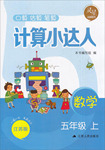题目内容
We were about to gather up our things and return to our car when a man came up.He looked very 1 indeed and asked us 2 if we knew that these grounds were his own.Father looked troubled and the man 3 a notice,which said that camping(宿营)was strictly forbidden. 4 father explained that he had not seen the 5 and did not know that camping was not allowed. 6 father apologized,the man did not seem satisfied.He asked father for his name and 7 All the way home,we were so 8 that hardly anyone spoke a word.This unpleasant thing had spoiled(损害)a wonderful day in the 9 .
For the rest of the week,we 10 what would happen.The following Sunday,we stayed at home even though it was a 11 day.About noon,a large and very expensive 12 stopped outside our house.We were surprised when we saw several people preparing to have a picnic(野餐)in our small 13 .Father got very 14 and went to ask them what they thought they were doing.You can imagine how 15 he was when he saw the man who had taken our address the week before!Both men burst out 16 and father welcomed the strangers into the house.We became good 17 . And we learned a lesson we have never 18 .That's“ Don't do to others 19 you don't like to 20 to you.”
1.
[ ]
2.
[ ]
3.
[ ]
4.
[ ]
5.
[ ]
6.
[ ]
7.
[ ]
8.
[ ]
9.
[ ]
10.
[ ]
11.
[ ]
12.
[ ]
13.
[ ]
14.
[ ]
15.
[ ]
16.
[ ]
17.
[ ]
18.
[ ]
19.
[ ]
20.
[ ]
解析:
|
1.从后文我们得知,这里有个牌子,上面写着不允许在此宿营,我们无视牌子上的内容在此宿营,那人自然不高兴。 2.因为他不高兴,因此他说话时很生气。本句前后为因果关系。在此C有较大干扰性,然而loudly不能说明心情。 3.那个人指着一个牌子。 4.受到别人的指责,爸爸有些可怜兮兮,因此作者用Poor father。 5.“没有看到牌子”是did not know that camping was not allowed的原因。 6.前后为转折关系,因此此处填though。 7.从后文...when he saw the man who had taken our address the week before得此答案。 8.那人写下爸爸的名字和我们的地址,我们搞不清他到底要干什么,因此我们worried。 9.从前文我们知道,这是我们在乡村发生的事情。 10.那星期其余的几大,我们一直在困惑到底发生什么事。在此B有较大干扰性,thought意思是“考虑”。而作者在此是说“我们对将会发生的事情猜不透。”因此B不合题意。 11.“尽管天很好,……”在此C有一定干扰性,表示“天气好”一般不用good。 12.从后文得知,这几个人是到我们这里来宿营,他们是开着车来的。 13.以后爸爸才把他们领进屋内,因此B不合题意;our small后跟ground和field都不合适。 14.这些人没有跟我们打招呼就进了我们的花园,因此爸爸生气了。 15.爸爸没有料到会是这些人,因此当他看到他们时,他很吃惊。 16.从and father welcomed the strangers into the house我们得知A不正确,burst out意思是“发出”,因此C为正确答案。 17.Father这么热情,他们前嫌皆弃,因此他们成了好朋友。 18.由此我们学到了我们永远也不会忘记的一课。 19. 20.最后两空较难选出。这句话的意思是“己所不欲,勿施于人”,to be done在此为被动语态,逻辑主语是you,因此you don't like后用不定式的被动语态。 |

 灵星计算小达人系列答案
灵星计算小达人系列答案